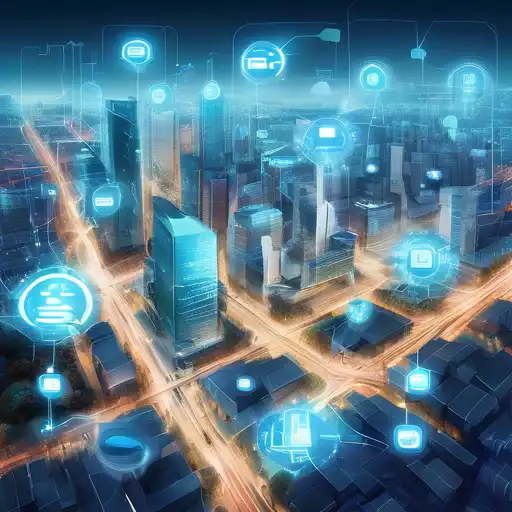Introduction to IoT in Smart Cities
The Internet of Things (IoT) is revolutionizing the way urban areas operate, making cities smarter, more efficient, and more sustainable. By integrating IoT devices and technologies, smart cities are able to collect and analyze data to improve infrastructure, public services, and the quality of life for their residents.
Key Components of IoT in Smart Cities
Smart cities rely on several key components of IoT to function effectively. These include:
- Sensors and Devices: These are the eyes and ears of the city, collecting data on everything from traffic patterns to air quality.
- Connectivity: High-speed internet and wireless networks ensure that data can be transmitted quickly and reliably.
- Data Analytics: Advanced algorithms analyze the collected data to identify trends and make predictions.
- User Interfaces: Apps and dashboards allow residents and city officials to interact with the system and access information.
Benefits of IoT in Smart Cities
The implementation of IoT in smart cities offers numerous benefits, including:
- Improved Traffic Management: IoT can reduce congestion and improve public transportation through real-time data analysis.
- Enhanced Public Safety: Smart surveillance and emergency response systems can make cities safer.
- Environmental Sustainability: IoT helps in monitoring and reducing pollution and energy consumption.
- Efficient Public Services: From waste management to water supply, IoT optimizes the delivery of essential services.
Challenges and Considerations
Despite its many advantages, the integration of IoT in smart cities is not without challenges. Privacy concerns, cybersecurity risks, and the high cost of implementation are significant hurdles that need to be addressed.
Future Prospects
The future of IoT in smart cities is bright, with continuous advancements in technology paving the way for even more innovative solutions. As cities become more connected, the potential for improving urban living is limitless.
For more insights into how technology is shaping our future, explore our articles on Digital Transformation and Urban Development.
Conclusion
The role of IoT in smart cities is transformative, offering solutions to many of the challenges faced by urban areas today. By leveraging the power of connected devices and data analytics, cities can become more livable, sustainable, and efficient for all their residents.
